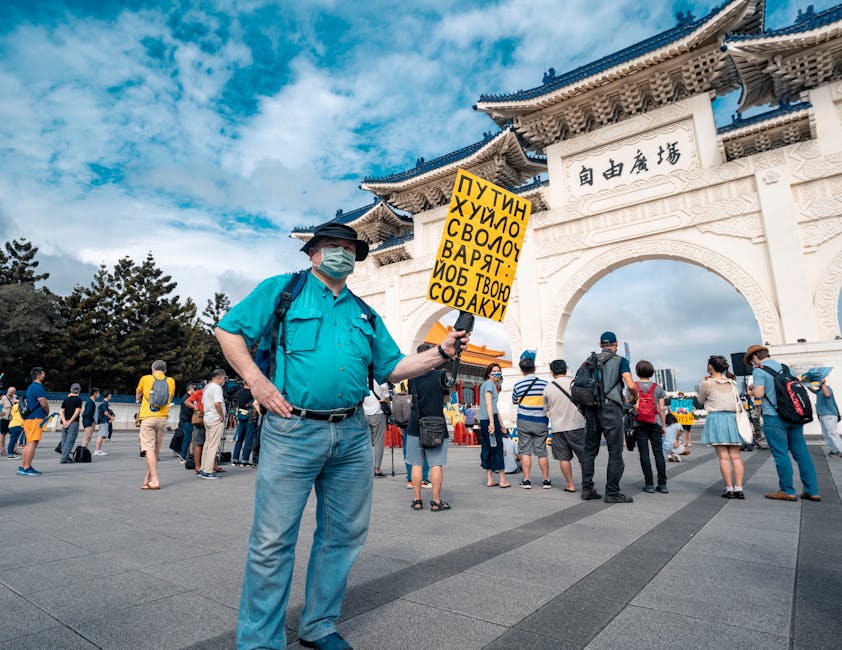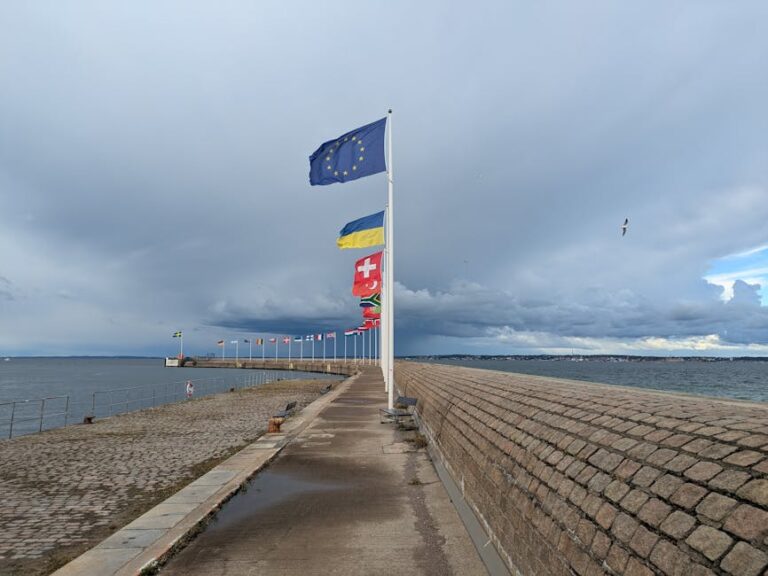Zagreb — Singer Marko Perkovic, known as Thompson, has reignited historical debate. His performances often feature symbols and rhetoric tied to Croatia’s fascist era.
Marko Perkovic, often called Thompson, has cultivated a fervent following. His concerts blend patriotic anthems with nationalist messaging. This has drawn criticism for referencing Croatia’s World War II-era Independent State of Croatia.
Perkovic’s performances frequently include the “Za dom spremni” salute. This greeting translates to “Ready for the homeland.” It was the official slogan of the Ustaše regime.
The Ustaše were responsible for widespread atrocities during the war. Their regime committed genocide against Serbs, Jews, Roma, and Croat anti-fascists. These historical facts underscore the controversy surrounding Perkovic’s displays.
A new generation of fans embraces his music. They see him as a protector of national identity. This perspective often downplays or ignores the darker historical context.
Thompson’s rallies attract thousands across Croatia and abroad. Many attendees wear memorabilia linked to nationalist sentiment. This creates a powerful visual representation of his support base.
Roots of Controversy
Perkovic’s music often features themes of national pride and historical struggle. His lyrics evoke a sense of unyielding Croatian identity. This resonates deeply with many who feel their heritage is under threat.
Critics argue his rhetoric and symbols legitimize historical revisionism. They point to the Ustaše’s criminal past. Human rights groups have repeatedly condemned the use of such imagery.
Official responses to his performances vary. Some politicians have distanced themselves from his actions. Others have remained silent or offered tacit support. This reflects a deep societal division.
The Croatian government has faced pressure to address the issue. Debates in parliament have occurred regarding hate speech. However, definitive legal action remains rare.
Perkovic himself has defended his actions. He claims he is honoring Croatian soldiers and history. He often states his aim is not to incite hatred.
His concerts are a significant cultural phenomenon in Croatia. They draw large crowds regardless of the ongoing debates. This demonstrates the enduring appeal of his message.
The historical context of “Za dom spremni” is undeniable. It is directly linked to a genocidal regime. Its public use continues to cause pain.
Many younger Croatians are discovering this history through his music. They are often unaware of its full implications. This lack of historical awareness is a growing concern.
National Identity Debates
The singer’s appeal extends beyond music. He is seen by supporters as a symbol of resistance. This resistance is against perceived foreign influences.
His nationalist stance taps into a post-communist desire for strong national identity. This is a sentiment felt across Eastern Europe. Croatia is no exception to this trend.
The use of controversial symbols raises questions about national reconciliation. True healing requires confronting the past honestly. Many believe Perkovic hinders this process.
His concerts can be viewed as rallying points for a particular ideology. This ideology prioritizes a specific vision of Croatia. It often excludes minority groups.
The debate around Perkovic highlights a broader societal challenge. Croatia is still grappling with its 20th-century history. This includes the legacy of both communism and fascism.
According to one analysis, nationalist sentiment remains a potent force in Croatian politics. Its resurgence can be linked to economic anxieties and perceived external pressures. This provides a fertile ground for figures like Thompson.
His legal standing remains complex. Croatia has laws against public incitement to violence. However, prosecuting symbols associated with past regimes is often legally challenging.
Many international observers monitor these developments. They note the potential for nationalist rhetoric to destabilize the region. Such rhetoric has historically led to conflict.
The Croatian judiciary has a role to play. Ensuring justice for victims of past crimes is crucial. This includes prosecuting those who glorify those crimes.
Thompson’s continued popularity suggests a segment of society feels unheard. These individuals may feel their contributions are overlooked. They seek validation through nationalist symbols.
The future of such public displays is uncertain. It will likely depend on legal interpretations and societal pressure. Croatia continues to navigate this sensitive terrain.
Marko Perkovic’s performances continue to divide opinion. The ongoing debate reflects Croatia’s struggle with its past. Future legal and societal responses will shape national discourse.




